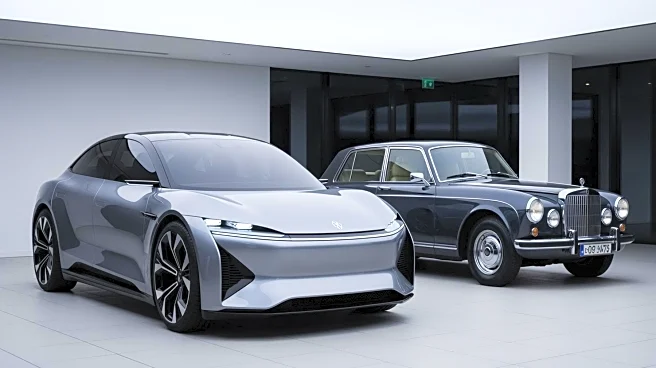What's Happening?
Alfa Romeo has announced the extension of the Giulia's production until 2027, alongside the Stelvio SUV. Originally set to end production this year, the decision comes as the company reworks its strategy
to accommodate internal combustion engines in future models. The shift is due to slower-than-expected adoption of electric vehicles, prompting Alfa Romeo to adapt the STLA Large platform for gas engines. The current models will continue production at the Cassino plant, despite lacking electrification.
Why It's Important?
The extension of Giulia and Stelvio production reflects broader industry challenges in transitioning to electric vehicles. As automakers face slower EV adoption, they must balance innovation with market realities. This decision highlights the complexities of meeting environmental goals while maintaining profitability and consumer demand. It underscores the need for flexible strategies in the automotive industry as companies navigate the shift towards sustainable transportation.
What's Next?
Alfa Romeo will continue to develop its next-generation models, incorporating internal combustion engines alongside plans for electrification. The company will need to address consumer preferences and regulatory pressures as it adapts its product lineup. The industry will watch closely how Alfa Romeo manages this transition, potentially influencing other automakers facing similar challenges.
Beyond the Headlines
The decision to extend production raises questions about the pace of technological change and consumer readiness for electric vehicles. It highlights the tension between environmental commitments and market dynamics, suggesting that the path to sustainability may require more gradual adjustments. The automotive industry may need to reconsider timelines and strategies for achieving electrification goals.










